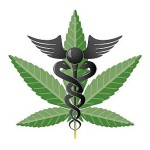The Effect of Minnesota’s Medical Marijuana Law on Patients And Employers
On Wednesday, July 1st, 2015, the first patients in Minnesota received medical cannabis under Minnesota’s medical marijuana law. The law requires that a licensed health care provider certify that the patient has one or more qualifying conditions, including:
- Cancer;
- Glaucoma;
- HIV/AIDS;
- Tourettes Syndrome;
- Amyotrophic Lateral Sclerosis (ALS);
- Seizures, including those characteristic of Epilepsy;
- Severe and persistent muscle spasms, including those characteristic of Multiple Sclerosis;
- Chron’s Disease;
- Terminal illness, with life expectancy of less than one year.
Just weeks ago, the Colorado Supreme Court – a state which allows for both medical and recreational use of cannabis – held that an employee fired for off-duty use of medical marijuana following a positive drug test was not protected under the state’s employment laws, as marijuana is still not legal under federal law.
However, while this case set an interesting precedent for the rest of the country to consider, the Minnesota statute offers greater protection to individuals taking advantage of the availability of medicinal cannabis. Employers in Minnesota may not discriminate against an individual based on that person’s status as a patient enrolled in the registry program or for a positive drug test, unless the patient used, possessed or was impaired by medical cannabis on the premises of the place of employment or during the hours of employment. There is a presumption that a patient enrolled in the registry is engaged in the authorized use of medical cannabis when they test positive for marijuana in a drug test.
While the law will protect most employees using medical marijuana, there is an exception for employers whose compliance would violate federal law, or cause an employer to lose a benefit under federal law.
If you have questions about how the new medical marijuana laws will effect your workplace, contact an Minnesota employment law attorney from LeBlanc Law & Mediation at 612-337-9530.


